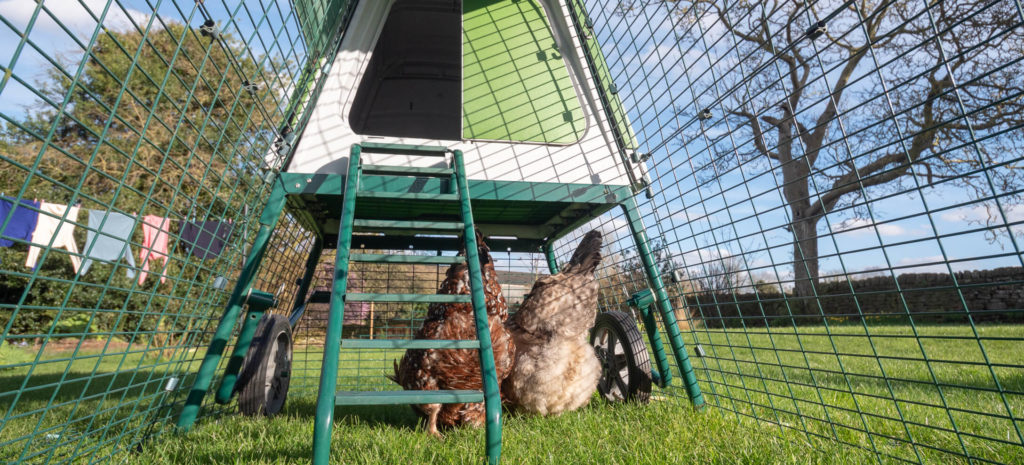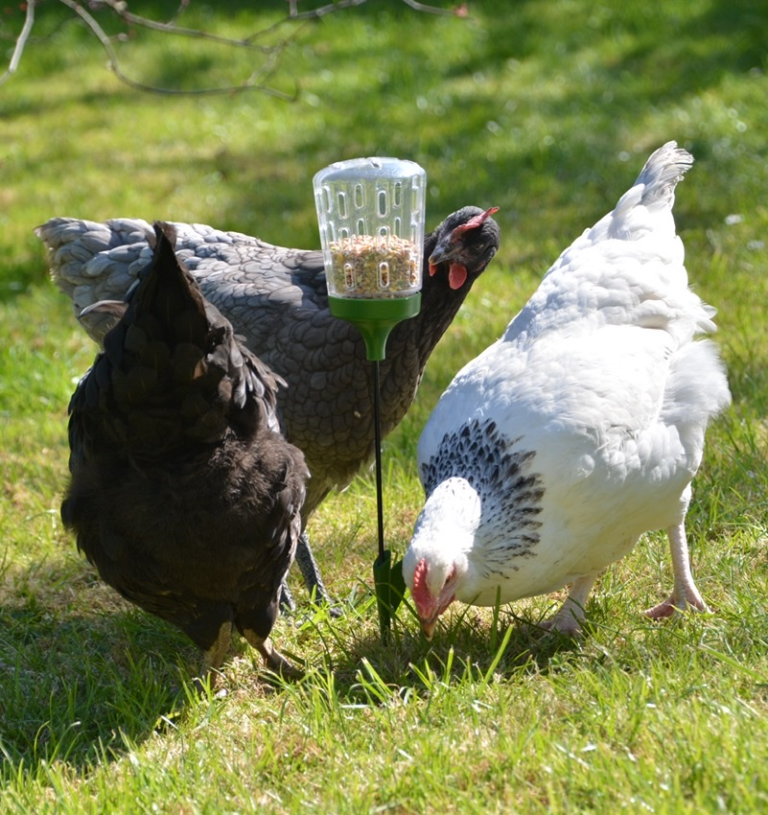Should I Be Worming My Chickens?

Like most other animals, chickens can suffer from parasitic worms. These are endoparasites that live inside your bird’s body, and are collectively called Helminths by vets.
Does my chicken have worms?
The three types of parasitic worms that your chickens are most likely to contract are:
- Roundworms. There are a number of different roundworms, with the large roundworm being the most common. They live anywhere in the bird’s digestive system, and can sometimes be spotted in your chickens’ droppings.
- Gapeworms. These nasty parasites attach themselves to the trachea of the chicken, hooking on without moving.
- Tapeworms. These attach themselves to the lining of the intestine and can get really long and unpleasant. They are less common, but will more significantly affect the bird.
It’s not always straightforward to tell if your chicken has worms, but symptoms may include a paler comb, decreased egg production, diarrhoea and increased appetite without weight gain. A chicken who has been infected with gapeworm will stretch their neck and gasp for air. Sometimes you won’t spot an infection until it’s really serious and possibly untreatable.
To worm or not to worm
Many chicken keepers therefore choose to worm their chickens regularly to prevent them getting infected, usually once in spring and once in fall. This is normally done using a poultry specific wormer you can get at the vets that will kill both the worms and their eggs. Make sure you get a worming treatment that is suitable for chickens, and check if you should be discarding the chicken’s eggs while she is being treated. Always worm all chickens at the same time.
Other chicken keepers think it’s better to only treat chickens that have a confirmed infection. This is partly because some wormers are only effective on particular parasites, and will be pointless if your chickens have a different type of worm. Some also think it’s unnecessary to stress the system by giving the birds treatment for an issue they might not have. Additionally, it can be pricey to worm a whole flock twice a year.
If you don’t want to treat your chickens without a diagnosis, but suspect they might have worms, you can get their droppings tested for presence of eggs. Ask your vet if they will do it for you, or you can send the droppings off to a laboratory in pre-made kits.
 Prevent infections
Prevent infections
Whether you decide to treat only confirmed worm cases or worm preventatively, it’s always best to do everything you can to make sure your chickens don’t contract parasites.
One of the best things to do is to regularly move their coop and run to a new patch. This will stop serious outbreaks, as it stops the life cycle of the worms. Worm eggs are expelled in the droppings from infected birds and survive on the ground for a surprisingly long time before they are picked up by foraging chickens. This is called a direct life cycle, as the worm doesn’t need a host animal to get to your hens. Worms that have an indirect life cycle on the other hand let their eggs first be ingested by for example earthworms, slugs or centipedes, where they lay dormant until the host is eaten by one of your chickens. The larvae hatch inside your hens, and the cycle repeats.
To prevent an unbreakable chain of worm infestations, it’s therefore important to regularly move your chickens. This is made easy by portable chicken coops like the Eglu Cube or the Eglu Go UP.
Another useful thing is to keep the grass mowed as the ultraviolet light from the sun can kill off potential worm eggs in your chickens’ droppings. Clean the run every week and scoop up droppings and wet bedding. If one of your chickens is infected it’ll be very difficult to get rid of all worm eggs from the ground, but every little helps!
Finally, many chicken keepers swear by the mineral supplement Verm-X. It’s a herbal formulation that works to create an environment in the gut that is able to eradicate and expel any intestinal challenges. This can be given as a supplement to your flock regularly to help their immune system stay on top.
This entry was posted in Chickens